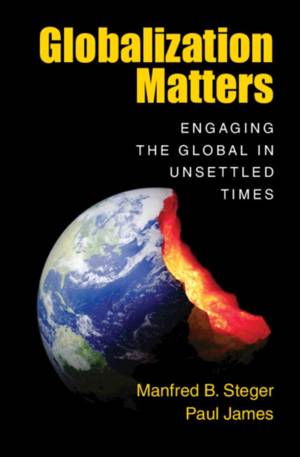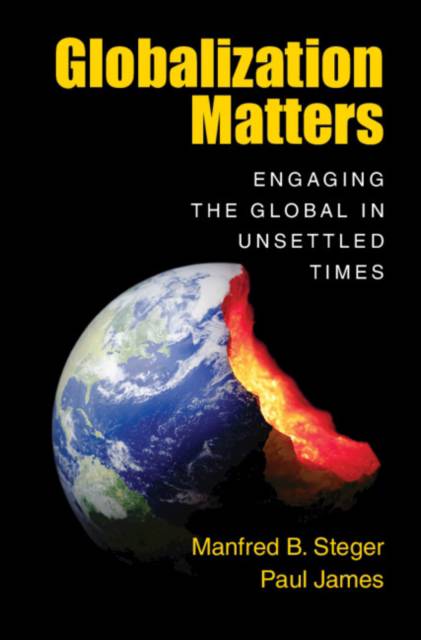
- Afhalen na 1 uur in een winkel met voorraad
- Gratis thuislevering in België vanaf € 30
- Ruim aanbod met 7 miljoen producten
- Afhalen na 1 uur in een winkel met voorraad
- Gratis thuislevering in België vanaf € 30
- Ruim aanbod met 7 miljoen producten
Zoeken
Globalization Matters
Engaging the Global in Unsettled Times
Manfred B Steger, Paul James
Paperback | Engels
€ 35,45
+ 70 punten
Omschrijving
At the turn of the twenty-first century, globalization - both the process and the idea - bestrode the world. Widely acclaimed by political and economic pundits as the most important phenomenon of our time, it took the world by storm. Two decades later, it has come under sustained attack by the re-invigorated forces of the extreme right and radical left. Does globalization still matter in our unsettled world? Responding in the affirmative, this study develops and applies a new framework of an 'engaged theory of globalization' to analyze some of today's most pressing global challenges: the rise of national populism, ecological degradation, rapid urbanization, new sources of insecurity, and the changing landscape of higher education. Offering a comprehensive appraisal of globalization in our unsettled times, the authors explain why and how transplanetary interrelations continue to matter in a world that is wavering between globalist expansion and nationalist retrenchment.
Specificaties
Betrokkenen
- Auteur(s):
- Uitgeverij:
Inhoud
- Aantal bladzijden:
- 308
- Taal:
- Engels
Eigenschappen
- Productcode (EAN):
- 9781108456678
- Verschijningsdatum:
- 19/09/2019
- Uitvoering:
- Paperback
- Formaat:
- Trade paperback (VS)
- Afmetingen:
- 171 mm x 228 mm
- Gewicht:
- 453 g

Alleen bij Standaard Boekhandel
+ 70 punten op je klantenkaart van Standaard Boekhandel
Beoordelingen
We publiceren alleen reviews die voldoen aan de voorwaarden voor reviews. Bekijk onze voorwaarden voor reviews.











